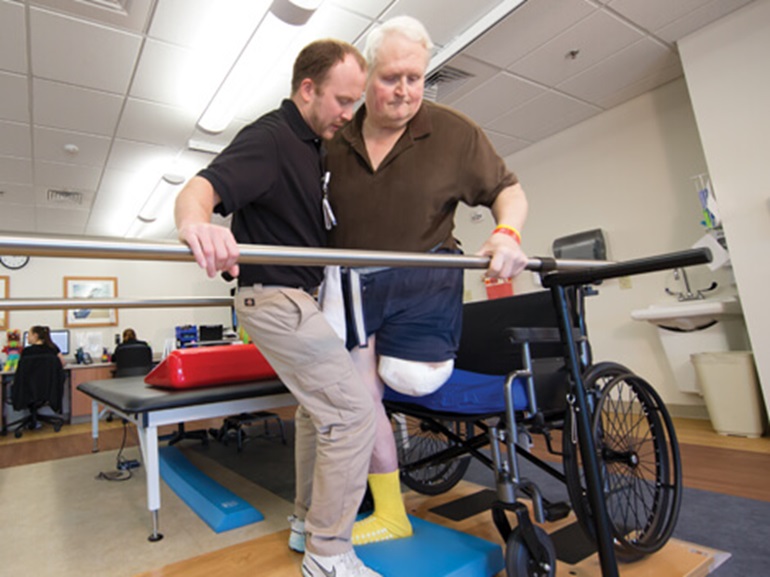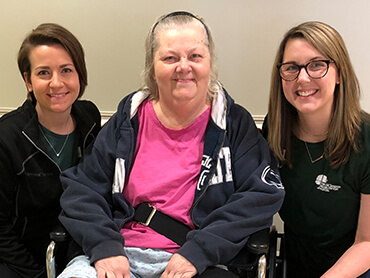Amputee Rehabilitation

Your progress. Our program.
Helen M. Simpson Rehabilitation Hospital provides individualized care to patients with limb loss, from post-surgical care to community reintegration.
-
At Helen M. Simpson Rehabilitation Hospital, an experienced team of amputee rehabilitation specialists addresses the range of medical, physical, psychological and emotional issues you face.
This interdisciplinary team is led by a physiatrist, a physician board-certified in physical medicine and rehabilitation and includes rehabilitation nurses; physical and occupational therapists; dietitians; pharmacists; case managers and other clinical and support staff, as needed.
-
Rehabilitation is an active process and patients participate in physical and occupational therapies three hours a day, five days a week. Treatment is carefully integrated and tailored to your goals and progress. The skills and strategies you learn in therapy will be reinforced by your nursing team.
While at our hospital, you will benefit from an integrated rehabilitation program that may include:
- Expert post-surgical wound care and residual limb management
- Hands-on therapies to enhance strength, flexibility, coordination and endurance
- Functional electrical stimulation to enhance muscle activity
- Pain or phantom limb pain management
- Wheelchair seating and mobility training
- Peer mentoring, support groups and monthly amputee clinic for both patients and families
-
Recovery takes time. Each patient is different and your length of stay will depend on the extent of your injury, goals and personal progress.
When you’re ready, your case manager will coordinate your discharge with your physician and clinical team. He or she will also arrange for equipment and/or outpatient services and provide information on community resources that may be available to you and your family.
-
Aquatic therapy is a safe, effective form of rehabilitation for those who may have difficulty exercising on land.
The buoyancy of water supports the body, helping ease an individual's fear of falling and promoting mobility, balance, strength and improving gait. Buoyancy, resistance and heat are some of the key elements that make aquatic therapy ideal in addressing balance, upper and lower extremity stretching and walking progression. Our pool is heated, wheelchair-accessible and equipped with gait observation cameras.
Our care team will determine whether you may benefit from aquatic therapy.
*Please note: aquatic therapy is not currently being offered due to COVID-19 restrictions. We hope to offer it again in the near future.
-
To help you return home and resume work, school, community and/or social activities, Helen M. Simpson Rehabilitation Hospital provides an unparalleled continuity of care. We help you manage your health from inpatient to outpatient care.
